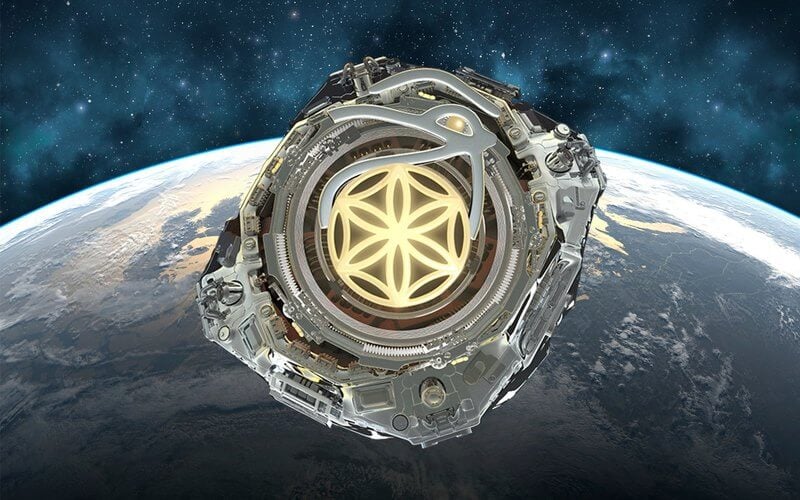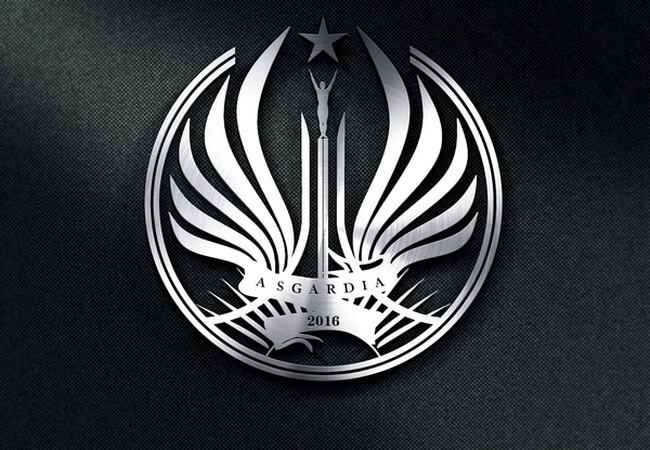
At the end of last year an international group of scientists announced the project Asgardia is the first independent space nation, free from the constraints of earthly law. Read more about this project you can read in our previous article. I confess, at the time it looked, to put it mildly, very controversial. No less controversial this idea is, however, according to the new proposal submitted to the Federal communications Commission (USA) (Federal Communications Commission, abbreviated as FCC), the project is gaining momentum, and the people behind the leadership of the project Asgardia, looking for an opportunity of launching of a space orbiting satellite, on Board of which database will be stored, not within the jurisdiction of earthly laws and governing authorities.
“If Asgardia will be able to find a country not having signed contracts on the use of outer space, the launch of the satellite from the territory of a country will not be subject to international regulatory obligations,” comments mark Sandall, Professor of space law from College of Law Cleveland-Marshall.
“In fact we face a new world of the Wild West”.
Named according to Norse mythology in honor soaring in the sky of the city of Asgard, Asgardia will be a permanent space station, whose inhabitants are engaged in the extraction of minerals on asteroids, as well as to ensure the protection of the Earth from outer space threats in the form of meteorites, space debris and other dangerous objects.
In October last year, has begun recruiting applicants. The project was announced that the first 100,000 registered people will be able to get a guaranteed citizenship Asgardia, irrespective of their nationality on the Ground. To the present time more than 180,000 people have actually sworn allegiance to yet another fictional state. Using crowdsourcing to Asgardia has its own flag, emblem, and currently is working on writing the national anthem, which promises to complete and submit on June 18.
Later it is planned to enter its own currency, and calendar, which will be a regular 12-month of the earth calendar, but with the addition of another month, called Asgard. It will be placed between June and July.
“We must leave the Earth, because it is inherent in the nature of mankind,” says RAM, Yak, rector of the Institute of aerospace law at McGill University and one of the founders of Asgardia.
“Humanity left Africa and covered the globe. But the resources of the Earth will end sooner or later. And we want to do something that nobody else did. To establish the first interplanetary space nation”.

At the time of the first announcement of their plans, the founders of the project said about the desire of the launch of the satellite “Asgardia-1” for 18 months, and then will begin preparing for the implementation of the second part of the project – raise funds for the construction of the space station. And judging by a recent application to the FCC, the project is at least on the way of realization of the first part of the set plan.
In submitted to the regulatory chamber, the document States that the organisation intends to launch a satellite by September 2017 in one of the next missions to deliver supplies to the International space station.
The satellite will be a compact cubesat with the size of 10 x 10 centimeters and weighing about one kilogram. On Board cubsat will be solid-state drive capacity of 512 gigabytes perezarazhenie data, but exactly what it will be data, not reported in the paper.
As pointed out by the journalists of the portal Motherboard, with this cubsat the founders of the project want to test how viable can be this method of storing data “out of the Earth.”
“On Board of Asgardia-1 will be the particle detectors to determine the radiation level, which may be its internal electronics”, — stated in the application.
The success of the first mission is to open opportunities for storage space, not subject to earthly laws. It seems that such an opportunity could hardly refuse the same owners torrent trackers.
Of course, the question of how legal this whole thing, again and again will be discussed by the public, but the fact all these conversations already gives a clear indication of how weak and flawed legal system to resolve Land issues of people wanting to colonize our near-earth space.
Steven Freeland, Professor of international law from the University of Western Sydney recently conducted a critical analysis of the Australian space activities Act, says that the hole and imperfection of legislative system will allow enterprising people to get their hands on the edge and take up space even before regulators will be able something to do with it.
“Sometime in the future, space will play a wedding, have children, kill each other. Prepare specific proposals to address these issues in the future and I think that projects such as we are discussing today will help to stir up and accelerate the adoption of relevant decisions,” commented Freeland portal News.com.au, adding that for the project itself, Asgardia are the scientists of the “highest caliber.”
The founders of Asgardia plan next week to hold a press conference in Hong Kong, where going to present to the world they have developed a satellite.
“The date of the event coincides with the opening of a new modern space era and will take place 60 years after the launch of the first artificial Earth satellite — “Sputnik 1″”, — informs the official website of the project.
“The first space nation” wants to develop outside the legal field of the Earth
Nikolai Khizhnyak